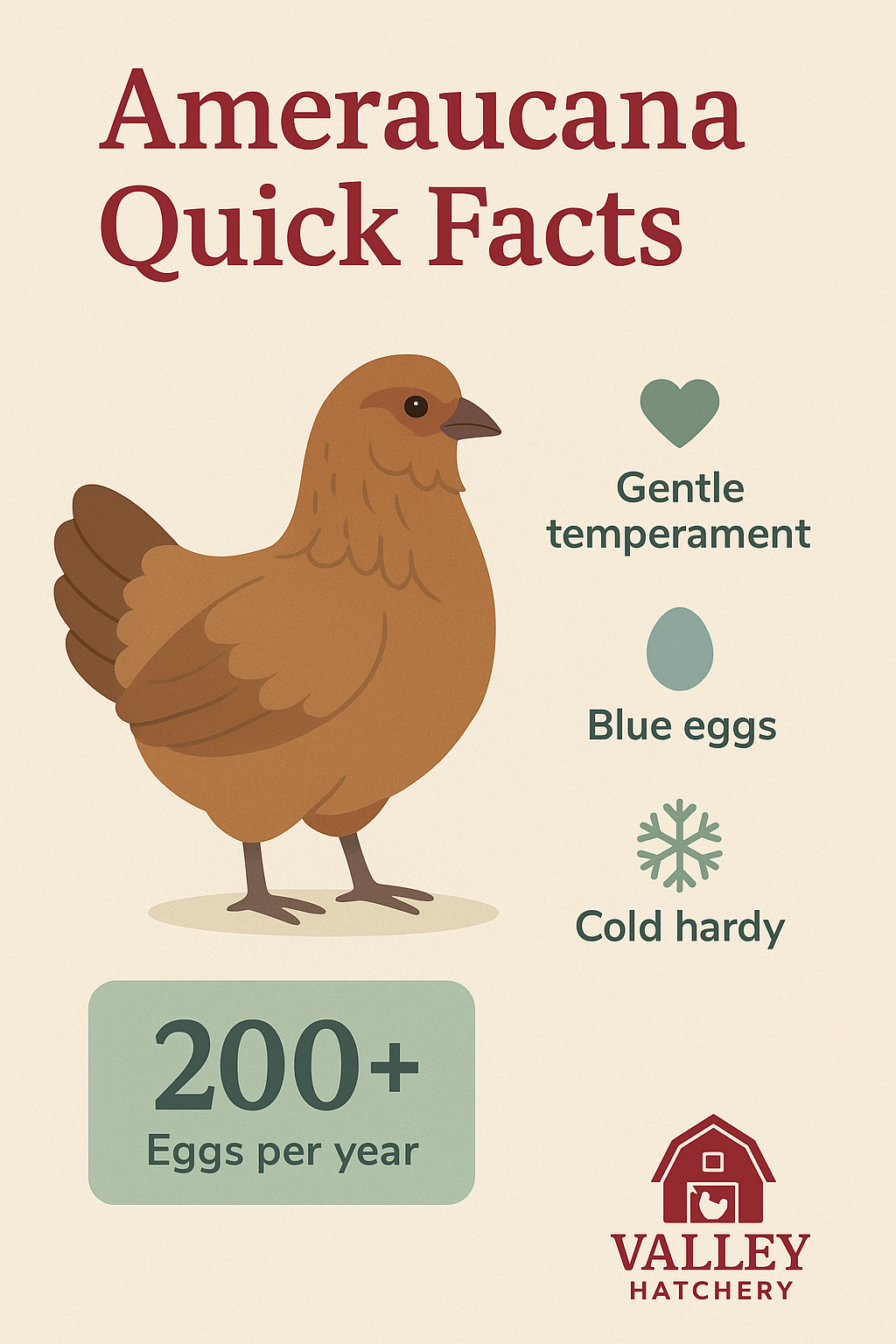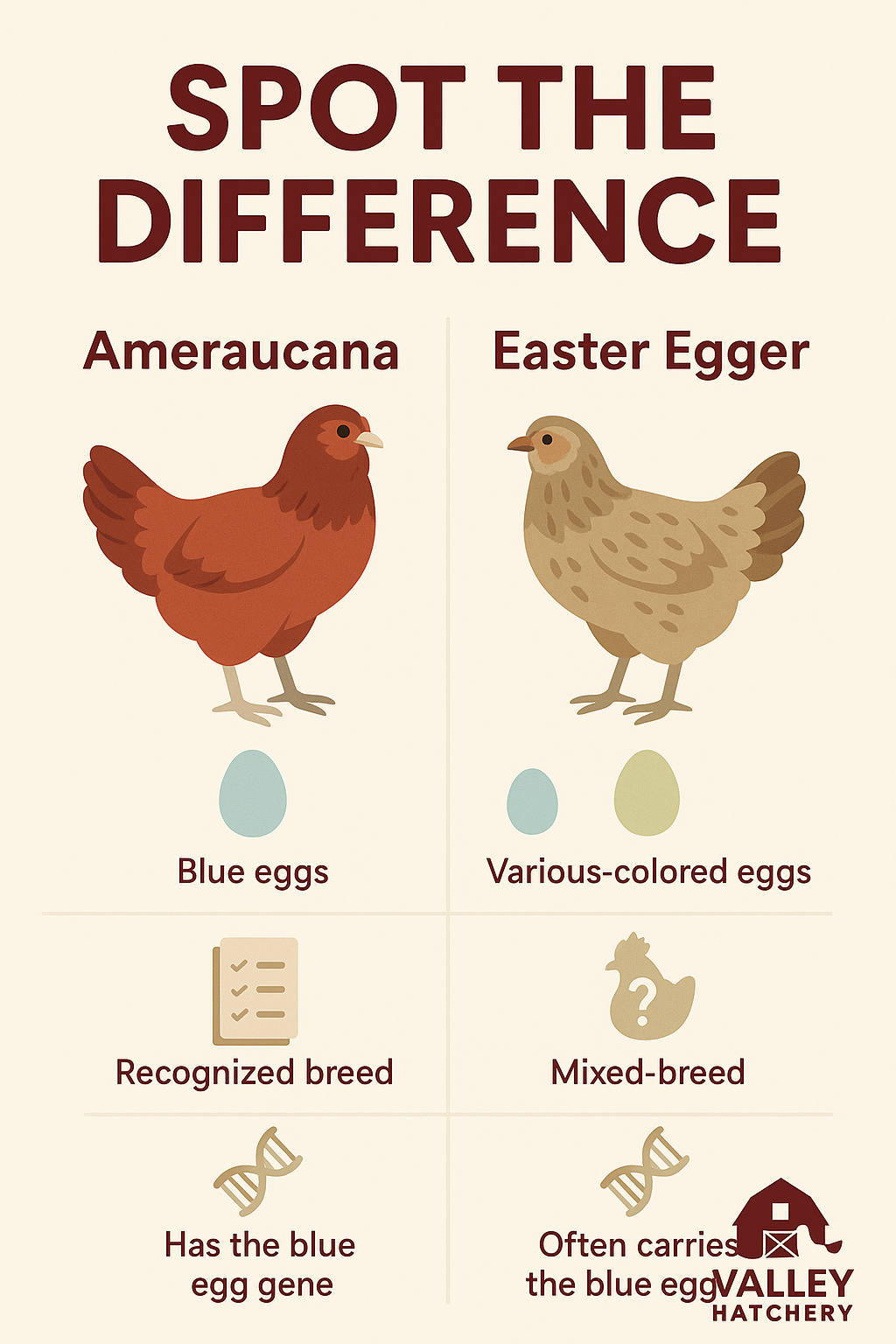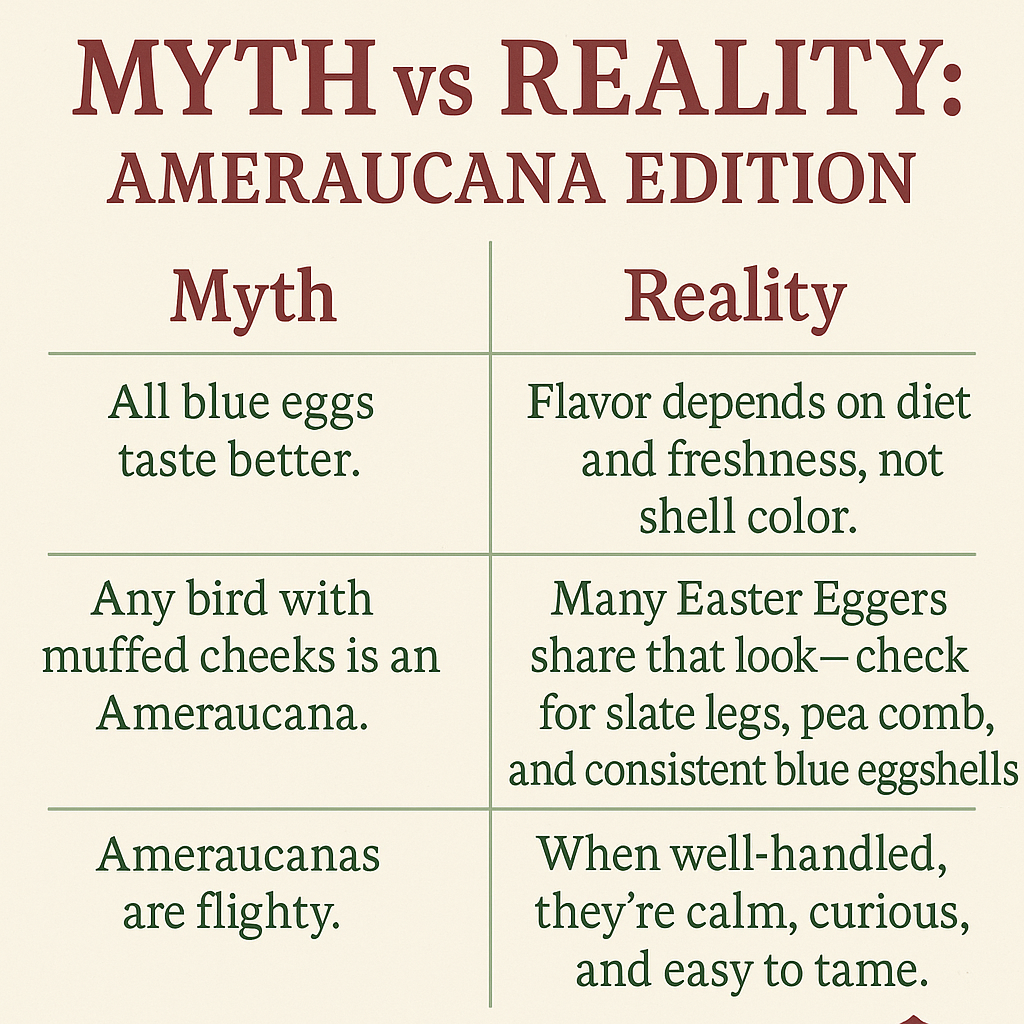There Is No "i" In Ameraucana
Ameraucana chickens have developed something of a mystique among backyard keepers—mostly because of their gorgeous blue eggs and the confusion that often surrounds their name. If you’ve ever wondered what makes a true Ameraucana special (and how not to mix them up with Easter Eggers), this friendly crash-course is for you.
Ameraucana at a Glance

- Gentle personalities make them easy additions to family flocks.
- Good cold hardiness plus a small pea comb = fewer frostbite worries.
- 200-plus blue eggs a year add instant “wow” to every egg basket.
A Brief History
Ameraucanas were developed in the United States during the 1970s from Araucanas imported from South America. Breeders kept the blue-egg gene but selected against lethal “ear-tuft” genetics and rumplessness, giving the Ameraucana its own safe, standard body type with a tail.
In 1984 the American Poultry Association (APA) accepted the first color variety; today there are eight recognized colors (Black, Blue, Blue Wheaten, Brown Red, Buff, Silver, Wheaten, and White).
Ameraucana vs. Araucana vs. Easter Egger

- Araucanas are rare, rumpless, and sport dramatic ear tufts—but those tufts come with a lethal gene that can reduce hatch rates.
- Easter Eggers aren’t a standardized breed; they’re fun, mixed-heritage layers that can lay blue, green, or even pinkish eggs.
- Ameraucanas give you the reliability of a recognized breed and the coveted blue egg shell.
Climate Tips
Cold: Their small combs shrug off frostbite, but provide wind blocks and deep litter for cozy toes.
Heat: Offer shade, extra waterers, and a shallow pan for “chicken foot baths.”
Color Genetics: Why the Eggs Are Blue
A dominant gene called O deposits a blue pigment (oocyanin) throughout the entire shell, so the inside is blue too—unlike brown layers, where color sits only on the outside. Cross an Ameraucana with a brown-egg breed and you’ll usually get green “olive-egger” offspring.

Is an Ameraucana Right for Your Flock?
Choose Ameraucanas if you want…
- Reliable blue eggs from a recognized, non-rumpless breed.
- Friendly birds that mingle well with kids and mixed flocks.
- A hardy chicken that handles cold snaps better than large-combed breeds.
Skip them if you need jumbo-sized eggs for commercial cartons or if show-quality color purity isn’t on your radar (in which case an Easter Egger could be a lower-cost option).
Final Cluck
Ameraucanas combine practicality with a dash of backyard eye-candy—the best of both worlds. Give them proper space, balanced feed, and plenty of gentle handling, and they’ll reward you with steady blue eggs and curious company for years to come.
What About The "i" ?
When shopping around for hatching eggs or baby chicks, you might see the label "Americana." This is a clever name for an Easter Egger mixed breed, and features heavily with some hatcheries because it's catchy - and easier to spell. If you want "the real thing," you don't have to recall the exact spelling. Just remember, there is no "i" in Ameraucana.